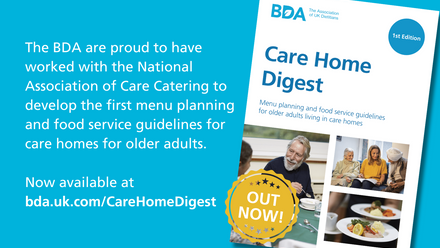Myalgic Encephalomyelitis (or Encephalopathy) / Chronic Fatigue Syndrome (ME/CFS), is a complex, chronic medical condition affecting multiple body systems.
It varies between individuals and can fluctuate over time.
Although some people recover or have a long period of remission, many will need to adapt to living with ME/CFS.

The impact of symptoms on everyday functioning varies widely in severity. People with mild ME/CFS may be able to do some light domestic tasks such as cooking (sometimes needing support), whereas people with moderate or severe ME/CFS may be more restricted in their activities. People with very severe ME/CFS may need help with eating, have difficulties chewing and swallowing, and/or require tube feeding.
What are the symptoms of ME/CFS?
Symptoms, lasting three months or more, include:
- debilitating fatigue
- post-exertional malaise (worsening of symptoms that can follow minimal cognitive, physical, emotional or social activity, or activity that could previously be tolerated)
- unrefreshing sleep
- cognitive difficulties (difficulty remembering, concentrating or thinking)
You may also experience:
- orthostatic intolerance (symptoms on standing up)
- temperature hypersensitivity
- neuromuscular symptoms (e.g. twitching and jerks)
- flu-like symptoms
- intolerances to alcohol or certain foods
- heightened sensory sensitivities (including taste and smell)
- pain
Can diet help with ME/CFS?
Your diet should be assessed by your healthcare professional when you are diagnosed. They will determine if you would benefit from a referral to a dietitian.
If you suspect or have a diagnosis of ME/CFS, it is important to maintain a healthy, balanced diet with adequate fluid intake. This will aid energy management and help manage your symptoms. The NHS Eatwell Guide shows how much of what we eat overall should come from each food group to achieve this. You do not need to achieve this balance with every meal, but try to get the balance right over a day or even a week.
- Base your meals on potatoes, bread, rice, pasta or other starchy carbohydrates, as they are a good source of energy. Aim to choose ‘lower GI’ carbohydrates that release energy more slowly (e.g. wholegrain bread, porridge) to help keep your blood glucose levels steady
- Beans, pulses, fish, eggs and meat are a good source of protein, vitamins and minerals. Aim for at least two portions of fish every week, one of which should be oily, such as salmon or mackerel
- Milk, cheese and yoghurt are a source of protein and some vitamins. They’re also an important source of calcium, which helps keep bones healthy. If choosing dairy alternatives, ensure you select versions that are fortified with calcium
- Aim for at least five portions of a variety of fruit and vegetables each day for vitamins, minerals and fibre – fresh, frozen, tinned and dried all count
- Choose unsaturated oils and spreads in small amounts
- Drink plenty of fluids – water, milk and sugar-free drinks all count. Fruit juice and smoothies also count, but limit these to 150ml per day. Some people with ME/CFS find that they are more sensitive to caffeine, so you may find it helpful to reduce tea and coffee, or switch to decaffeinated. If caffeine affects your sleep, avoid caffeinated drinks in the late afternoon and evening
You may find it helpful to plan your meals in advance, and to batch-cook and freeze meals in individual portions for days when you are lower in energy.
There is a lot of conflicting information about ME/CFS and diet online. There is no scientific evidence to support the use of restrictive diets in ME/CFS, which can use up time, energy and money, as well as leaving you vulnerable to nutritional deficiencies. Such diets include the ketogenic and anti-candida diets.
Weight loss
This can occur if you are restricting your diet, have a reduced appetite (for example due to taste changes or nausea), or are having difficulty swallowing and chewing. If you become malnourished, this could make you more vulnerable to illness. It may help to eat little and often, choose softer foods that are easier to eat, and have nourishing snacks and drinks between meals. For ideas, see the BDA Food Fact Sheet on malnutrition.
Weight gain
On the other hand, you may find that you gain weight because you are less physically active, or have an increased appetite. If this is the case, try to reduce sweet or fatty snacks and drinks and consider your portion sizes. Think about ways you can make healthier foods, such as fruit and vegetables, more easily accessible to you. For ideas, see the BDA Food Fact Sheet on weight loss, but bear in mind that weight loss may be slower and more gradual in ME/CFS.
Gastrointestinal symptoms
Many people with ME/CFS report IBS-like symptoms, including constipation, diarrhoea and/or bloating. You will find helpful dietary advice in the BDA Food Fact Sheet on IBS, for example advice on reducing caffeine, fizzy drinks and rich/fatty food.
If your IBS symptoms persist after following the advice in the leaflet, talk to your GP. You may benefit from referral to a dietitian, who can assess your suitability for the low FODMAP diet. This is a short-term, three stage food elimination and reintroduction process. As it is a complex and restrictive diet, you will require the support of a trained dietitian.
Your GP may also be able to discuss pharmaceutical options to relieve your symptoms, and advise you on psychological therapies if your symptoms are triggered by stress or anxiety.
Nausea
If you are experiencing nausea, make sure you keep up adequate fluid intake and eat regularly, having small amounts often. Not eating or drinking may increase your nausea.
Food intolerances
Some people with ME/CFS report sensitivities to different foods, however it is not clear why this is the case. Reactions are more likely to be intolerances rather than allergies, which means that they do not involve the immune system. You may find that you can continue to have small amounts of the food without triggering a reaction.
Discuss suspected intolerances with your GP. Avoid commercially available tests that claim to diagnose food hypersensitivity, as these have no scientific basis. Overly restricting your diet may make you vulnerable to malnutrition and worsen your ME/CFS symptoms.
Are there supplements I can take?
There is not enough evidence to support taking regular specific vitamin and mineral supplements to cure or manage ME/CFS. You may be at risk of side effects if you take doses above the recommended daily amount.
However, people with ME/CFS may be at risk of vitamin D deficiency, particularly those who are bedbound or do not go outside. It is recommended to take a daily supplement containing 10μg (micrograms) or 400IU (international units) vitamin D.
Most people should get all the nutrients they need through a balanced and varied diet, however if you are concerned, you could take a daily multivitamin containing no more than 100% of recommended daily intake.
Seeing a dietitian
Your GP should refer you to a dietitian with a special interest in ME/CFS if you are:
- Losing or gaining weight unintentionally
- Following a restrictive diet
- Living with severe or very severe ME/CFS
Children and young people with ME/CFS who are losing weight, have faltering growth or dietary restrictions should be referred by the GP to a paediatric dietitian with a special interest in ME/CFS.
Top tips
- ME/CFS affects multiple body systems, affects people differently and can fluctuate over time
- Maintaining a healthy diet and adequate fluid intake can aid energy management and help manage your symptoms
- Choose ‘lower GI’ carbohydrates that release energy more slowly
- Batch cook and freeze meals in individual portions for days when you have less energy for cooking
- There is no scientific evidence to support the use of restrictive diets like the ketogenic diet
- If you are losing weight, try to eat little and often
- If you are gaining weight, consider how to make healthier foods more accessible to you
- You may benefit from dietary advice to manage gastrointestinal symptoms
- Discuss suspected food intolerances with your GP before unnecessarily restricting your diet
- Take a daily vitamin D supplement
Source(s)
BAPEN. Introduction to Malnutrition [Internet]. Bapen.org.uk. 2018 [cited 17 November 2021]. Available from: https://www.bapen.org.uk/malnutrition-undernutrition/introduction-to-malnutrition?start=2
British Dietetic Association. Allergy Food Fact Sheet [Internet]. Bda.uk.com. 2021 [cited 17 November 2021]. Available from: https://www.bda.uk.com/resource/food-allergy-food-intolerance.html
British Dietetic Association. Food Allergy Testing Food Fact Sheet [Internet]. Bda.uk.com. 2021 [17 November 2021]. Available from: https://www.bda.uk.com/resource/food-allergy-intolerance-testing.html
British Dietetic Association. Glycaemic Index Food Fact Sheet [Internet]. Bda.uk.com. 2020 [cited 17 November 2021]. Available from: https://www.bda.uk.com/resource/glycaemic-index.html
British Dietetic Association. Irritable Bowel Syndrome Food Fact Sheet [Internet]. Bda.uk.com. 2019 [cited 17 November 2021]. Available from: https://www.bda.uk.com/resource/irritable-bowel-syndrome-diet.html
British Dietetic Association. Malnutrition [Internet]. Bda.uk.com. 2019 [cited 17 November 2021]. Available from: https://www.bda.uk.com/resource/malnutrition.html
British Dietetic Association. Weight Loss [Internet]. Bda.uk.com. 2021 [cited 17 November 2021]. Available from: https://www.bda.uk.com/resource/weight-loss.html
Campagnolo N, Johnston S, Collatz A, Staines D, Marshall-Gradisnik S. Dietary and nutrition interventions for the therapeutic treatment of chronic fatigue syndrome/myalgic encephalomyelitis: a systematic review. Journal of Human Nutrition and Dietetics. [Internet]. 2017 [cited 17 November 2021] 2017;30(3):247-259. Available from: https://pubmed.ncbi.nlm.nih.gov/28111818/
King’s College London. FODMAPs | School of Life Course & Population Sciences | King’s College London [Internet]. Kcl.ac.uk. 2021 [cited 17 November 2021]. Available from: https://www.kcl.ac.uk/slcps/our-departments/fodmap/fodmaps
NHS. The Eatwell Guide [Internet]. nhs.uk. 2019 [cited 17 November 2021]. Available from: https://www.nhs.uk/live-well/eat-well/the-eatwell-guide/
NHS. Vitamin D [Internet]. nhs.uk. 2020 [cited 17 November 2021]. Available from: https://www.nhs.uk/conditions/vitamins-and-minerals/vitamin-d/
McKenzie Y, Bowyer R, Leach H, Gulia P, Horobin J, O'Sullivan N et al. British Dietetic Association systematic review and evidence-based practice guidelines for the dietary management of irritable bowel syndrome in adults (2016 update). Journal of Human Nutrition and Dietetics [Internet]. 2016 [cited 17 November 2021];29(5):549-575. Available from: https://pubmed.ncbi.nlm.nih.gov/27272325/
NICE. Overview | Myalgic encephalomyelitis (or encephalopathy)/chronic fatigue syndrome: diagnosis and management | Guidance | NICE [Internet]. Nice.org.uk. 2021 [cited 17 November 2021]. Available from: https://www.nice.org.uk/guidance/ng206
NICE. Overview | Irritable bowel syndrome in adults: diagnosis and management | Guidance | NICE [Internet]. Nice.org.uk. 2017 [17 November 2021]. Available from: https://www.nice.org.uk/guidance/cg61







